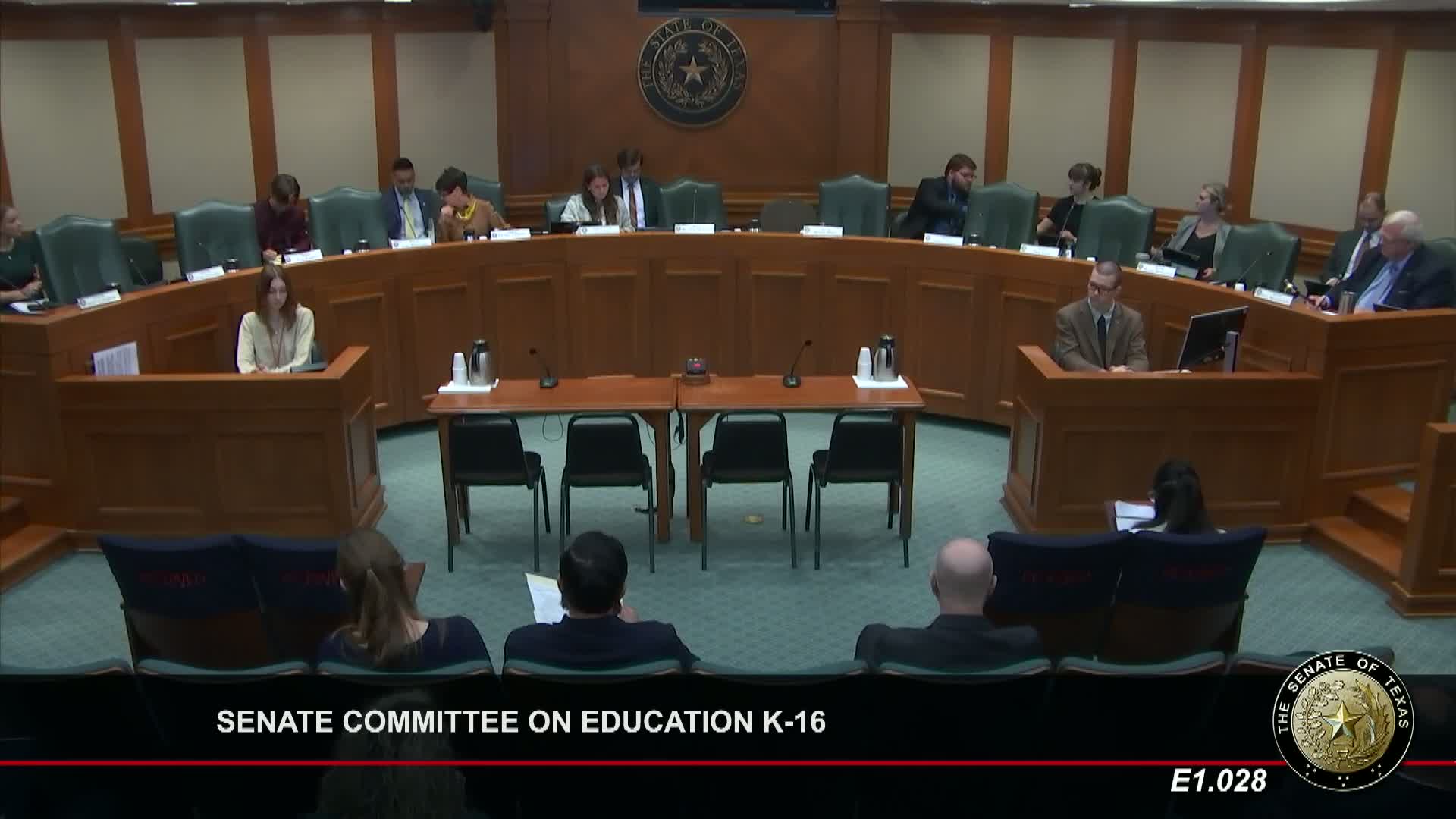Article not found
This article is no longer available. But don't worry—we've gathered other articles that discuss the same topic.
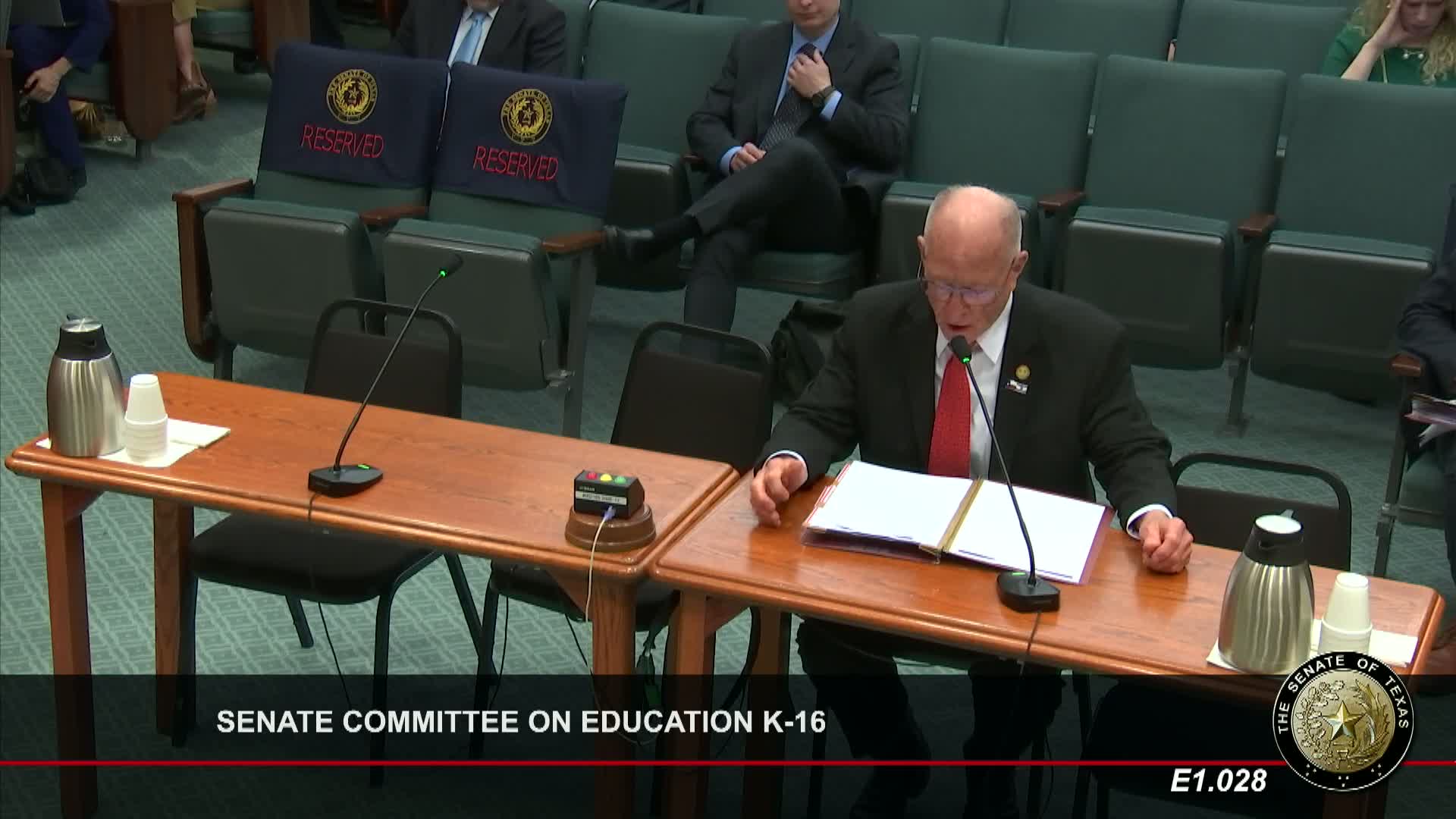
Bill would require trustees to appoint local school health advisory council members and reserve majority for parents
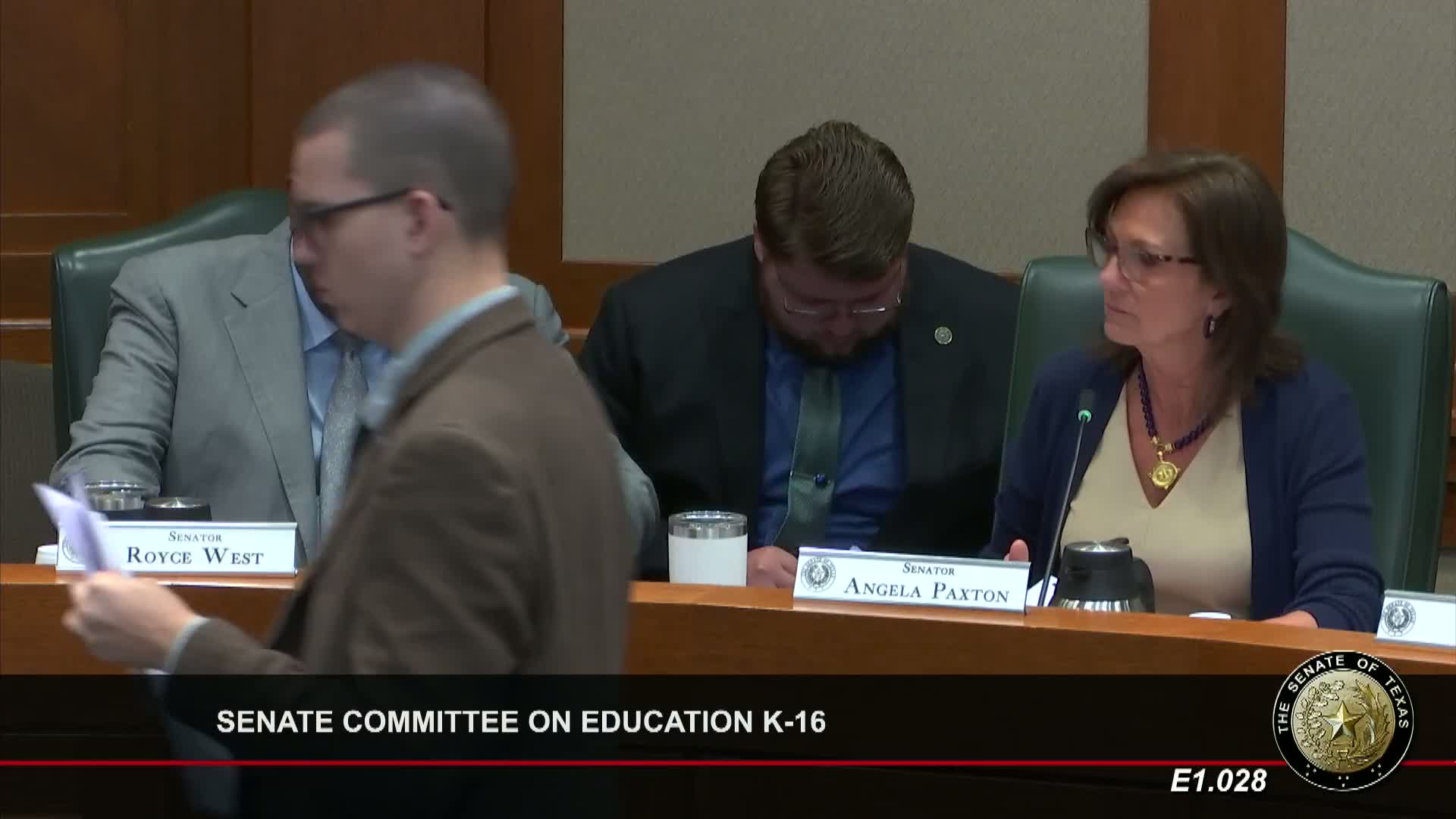
Bill would switch UIL homeschool access from opt‑in to opt‑out and allow nearest participating district participation
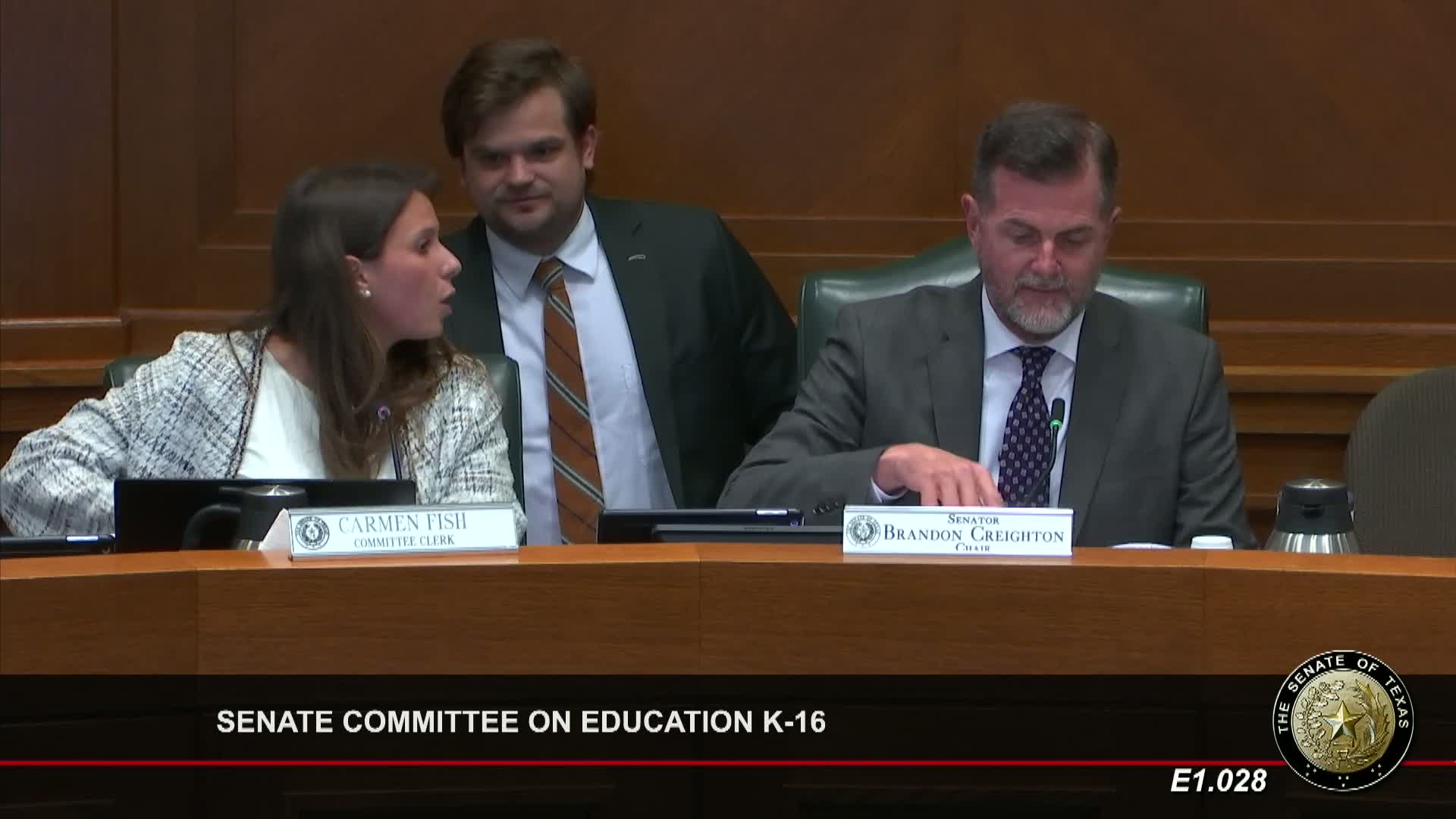
Bill would bar school boards from restricting trustees’ speech about district matters
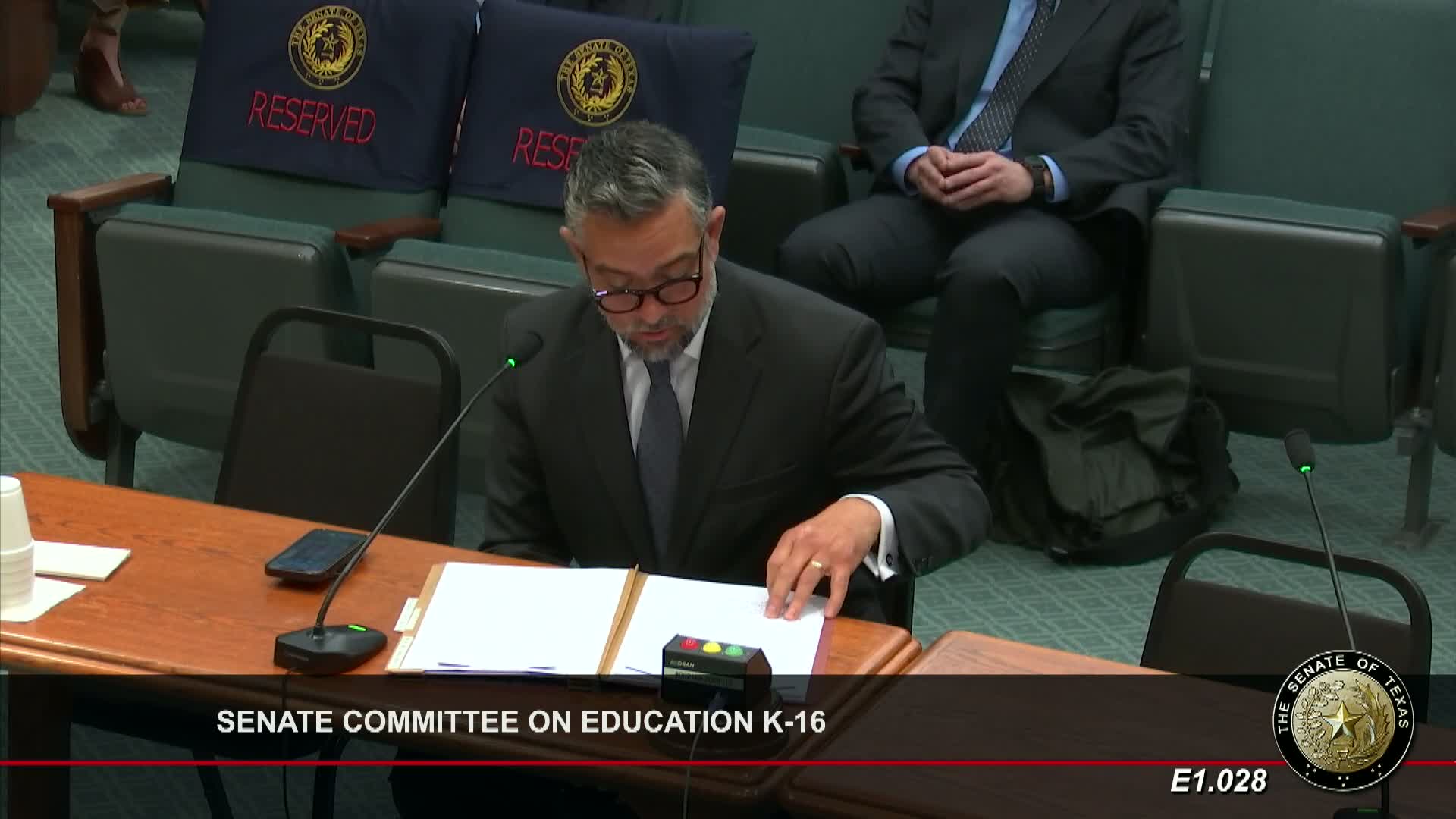
Bill would let very small districts hire former trustees immediately after leaving office
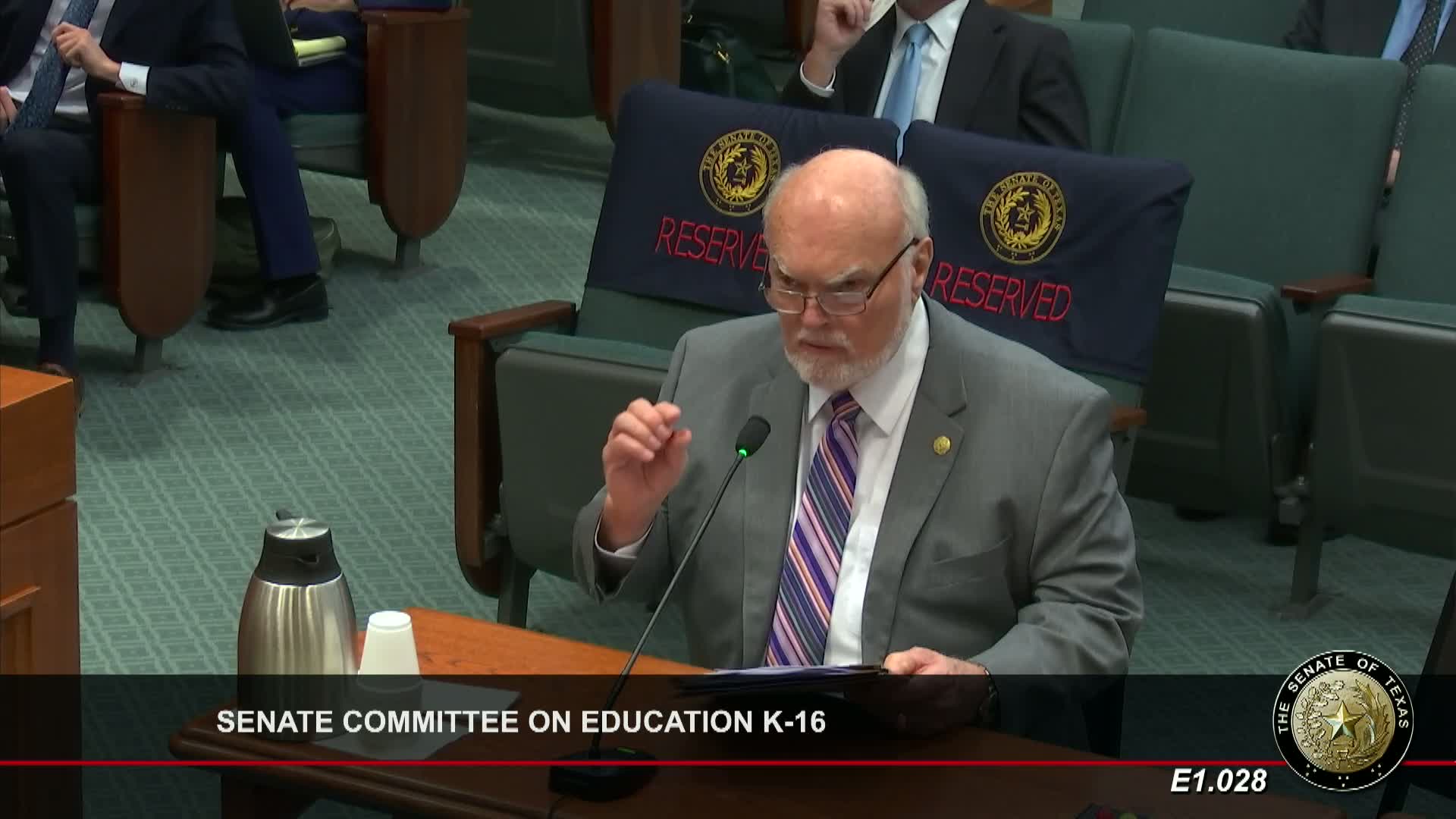
Bill would clarify minor boundary adjustments carry associated contracts and covenants with transferred land
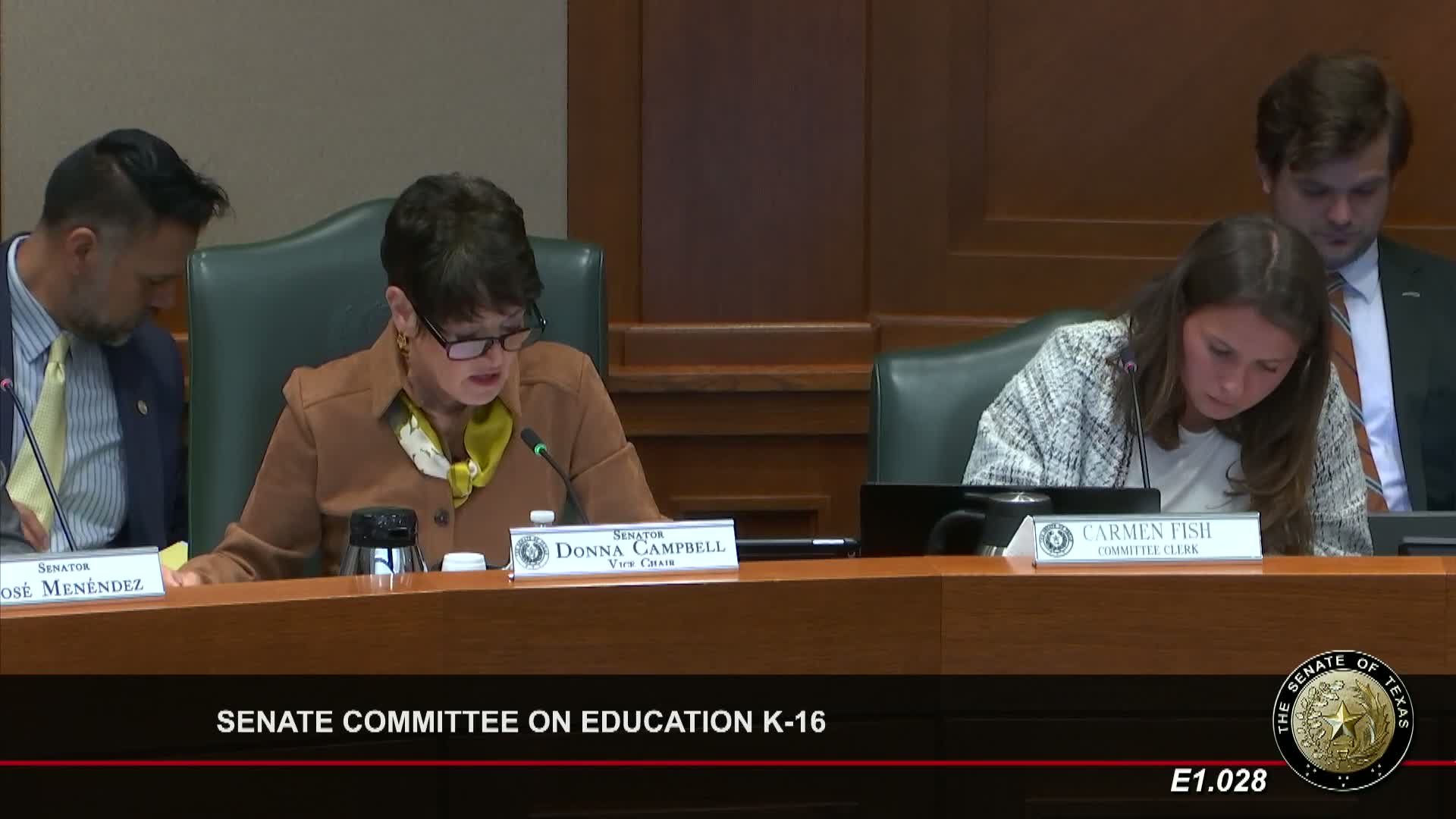
Bill would clarify anabolic steroids for gender transition do not qualify as medical exemptions under UIL rules
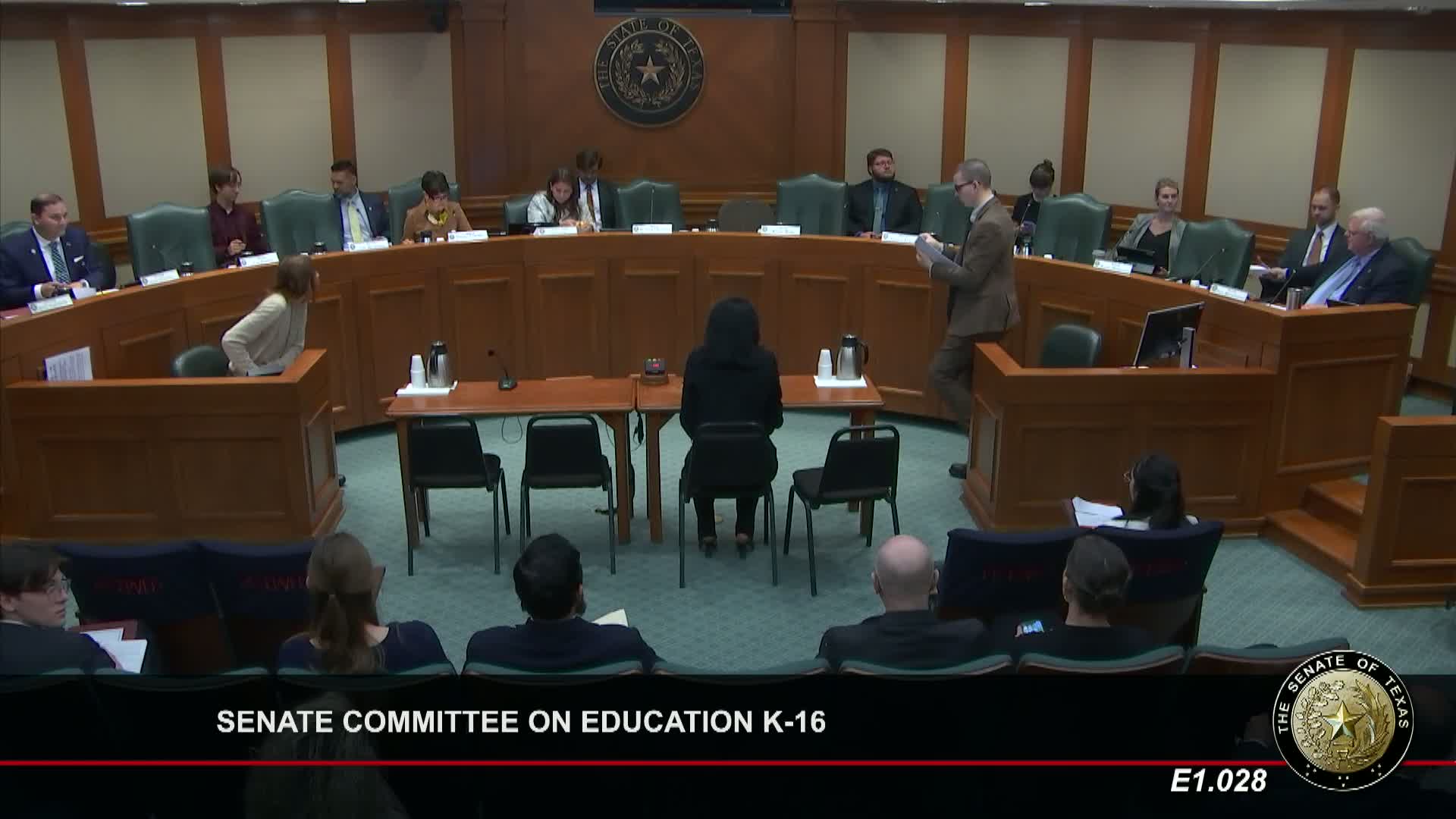
Committee substitute would expand CPR training requirement to more school staff in certain private schools
